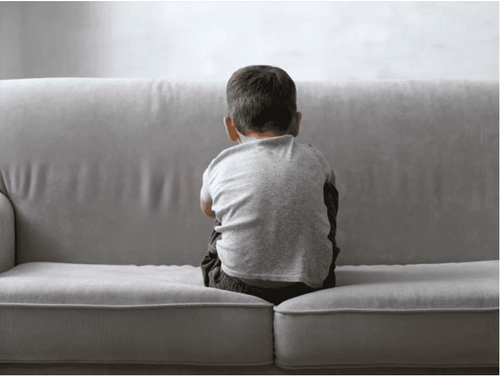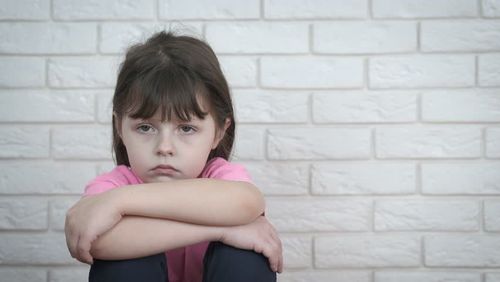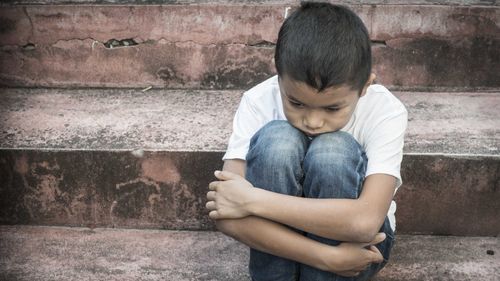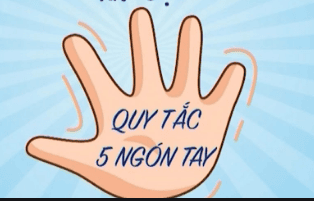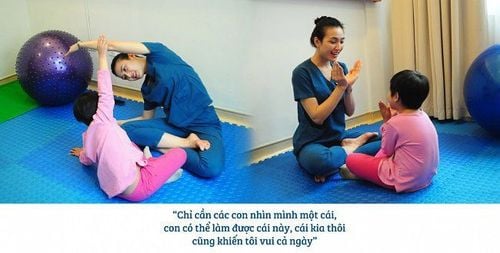This is an automatically translated article.
Posted by Master Music Therapist - Unit of Regenerative Medicine Clinic and Educational Psychology - Vinmec Times City International General Hospital.
According to the Diagnostic and Statistical Manual of Psychiatry, 5th Revised (DSM-5), the definition of a disability in social skills of children with autism is “Insensitivity, insensitivity, and emotional sharing. , my preferences with others, can't start a conversation, enter a conversation, and my way of responding in social communication is very unusual."
Children with autism always show “Deficits in social skills through gestures, behavior, verbal and nonverbal use, eye contact, and inability to understand or express by gestures. , unable to show facial expressions, has difficulty making and maintaining friendships, with the exception of parents and other caregivers. Unable to change behavior according to people's demands... lack of ability to pretend play and lack of interest in group activities...” [1]
1. What are social skills?
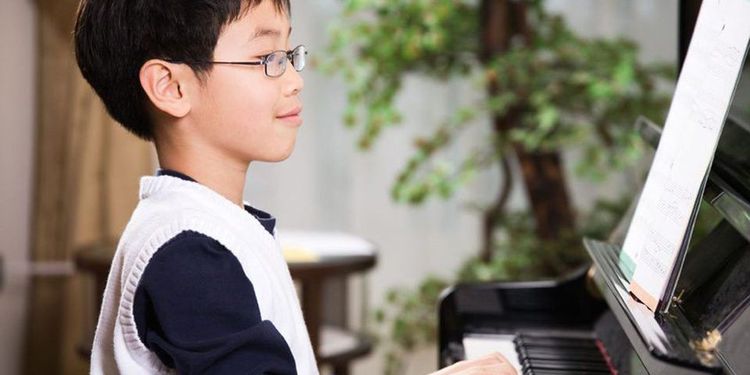
Social skills are the skills we use every day to interact and communicate with others. These include verbal and nonverbal communication (words, gestures, facial expressions, and body language).
A person has strong social skills if they have knowledge of how to behave in social situations and understand both written and implied rules when communicating with others. Children diagnosed with Autism Spectrum Disorder (ASD), Pervasive Developmental Disorder, and Asperger's have difficulty with social skills. [2]
In 1973, the American Music Therapy Association for Autistic Children in America was established, named American Music Therapy Association (AMTA) with the aim of overcoming the defects and difficulties of autistic children. Many studies have found that children and adults with autism respond well to music.
Music engages autistic children, bringing them into a world of emotions and feelings that are difficult for children with autism. Music can penetrate into the emotional world, go into the subconscious, the unconscious without the autistic children knowing. [3]
Music brings many benefits to support children with autism spectrum disorders, especially with the article "The role of music therapy in children with autism" published in the Special Education Journal (September 2016), author Nguyen Thi Hanh presented effective studies of:
+ Music helps children with autism improve communication and develop social skills.
+ Music helps children with autism reduce abnormal behavior and increase desired behavior.
+ Music can reduce anxiety and insecurity and help children with autism calm down
+ Music brings joy to children with autism [3]
In specialized intervention programs for children With autism, music also plays an important role, especially in social interaction and communication programs such as Fern Sussman's "More than Words", Steven E. Gutstein and Rachelle's "RDI for Young Children" K.Sheely, "Communication requires two people" by Ayala Manolson... Music brings meaning and plays a significant role in approaching and intervening to overcome difficulties for children with autism spectrum disorder.
2. The effect of music therapy on the development of social communication skills for children with autism spectrum disorder
Studies around the world show that music is attractive because it transcends language, is a way to the emotional and emotional world, breaks down the wall separating children with autism spectrum disorder from the world. outside world. The emotional, emotional world is said to be strange for children with autism spectrum disorder, but music can penetrate. Music can penetrate into the subconscious, the unconscious without the child knowing it, attracting and penetrating that the child cannot resist [3].
From the time they are in the crib, babies have been exposed to music through lullabies that put them to sleep. Music not only begins with the hums of grandmothers and mothers, but it also exists in the drums of festivals, folk games, children's songs, rhythms, chants, etc. in the folk songs of each region...
Music is associated with daily activities, it is a string that not only connects children, it is also a means of entertainment for people. It is close, friendly and is a way to exchange emotions and feelings between people.
According to Don Campbell - a world famous educator and author of the book "The Effects of Mozart on Children", music helps develop intelligence, cooperation and social communication skills . [4]
Music has a great community, through the use of musical expression methods such as singing, playing musical instruments, moving to music, listening to music, watching performances... Music like an invisible string that gives children the opportunity to contact and interact with people, to feel and express their feelings to the world.
Music is close, familiar, easy to find anywhere in life, music does not discriminate against race, age, gender.... Therefore, using music properly helps children self-confident. Students can easily integrate and develop social interaction skills naturally through collective, association, and group activities.
Unit of Educational Psychology - Autism, Vinmec Times City International General Hospital is a pioneer in applying scientific and artistic methods to assess and treat children with autism, with high efficiency.
Areas of intervention to educate children with autism at Vinmec:
Pediatric psychiatry Clinical psychology - educational psychology Special education Speech therapy Meditation - yoga therapy Music therapy Fine art therapy Doctors Doctors, therapists and teachers at the Center are trained at prestigious schools: University of Education, University of Social Sciences & Humanities – Hanoi National University, Academy of Educational Management ... and regularly learn to improve skills through short-term and long-term training courses at home and abroad with leading experts from the US, Australia, India, Italy.
Please dial HOTLINE for more information or register for an appointment HERE. Download MyVinmec app to make appointments faster and to manage your bookings easily.
Articles refer to the source:
APA. DSM – 5 (2013) Connor M. (2002). Promoting social skills among children with autossm. http://www. Mugsy.org/connor38.htm Nguyen Thi Hoang Yen (2013), Autism - theoretical and practical issues, Pedagogical University Publishing House. http://www.pps.vn.index.php/thu-vien/tu-lieu/item/228




